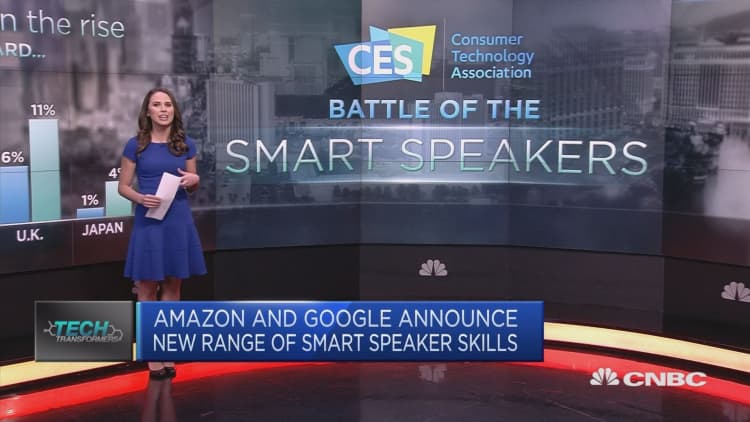An estimated 53 million Americans own at least one voice-activated smart speaker.
And many millions use their devices to ask "fun" questions, something they do over searching online, playing games or ordering shopping, according to a survey by Adobe published Tuesday.
Playing music is the most popular activity, with 74 percent of people saying they use them for this purpose, followed by checking the weather forecast (66 percent). Fifty-eight percent of people say they use their device for asking those fun questions, the third most popular activity.
Adobe's study surveyed 1,000 people in the U.S. over four days in January. Setting an alarm, checking the news and searching online are all popular too, but shopping for an item is something only 26 percent of people claim to have done via smart speaker. This is down from 30 percent when Adobe last conducted its voice survey in August 2018.
Adobe Analytics Director Colin Morris suggests that brands need to think about the tasks they can help with to get people to use smart speakers more often. "Simplicity is key and starting with a single-function 'hero feature' is the best starting point. This happened successfully on smartphones, with features such as getting a boarding pass," he said in the report, which was emailed to CNBC.
Few people use smart speakers to manage their finances — only 5 percent, compared to 13 percent last August. Not many people use their voice assistants to research hotels or flights (11 percent) and few use them to order takeout (14 percent).

Most people Adobe surveyed said they use their smart devices either daily or many times a day (75 percent), and 77 percent report increased use of their smart speakers. Ownership has grown by 14 percent, with 36 percent of people owning a speaker now versus 32 percent last August.
"The double-digit growth we see in ownership, along with continued daily usage, shows that the path for smart speakers has diverged from other emerging technology trends like 3D TV and VR headsets — now becoming a part of everyday life," Morris said.
When it comes to other devices people would like to have voice functionality, TVs come out top, with 42 percent. Twenty-nine percent would like their car to include a voice assistant and 29 percent their thermostat. People are not so keen for appliances like ovens, refrigerators and washing machines to be voice activated.
Thirty-two percent of U.S. consumers use voice assistants to search for something online over typing their query onto a mobile device or desktop computer, according to the survey. While 28 percent said they use voice assistants for search in equal measure to mobile or desktop.
In terms of advertising, 25 percent of people said they had heard commercials on their smart speaker. Of those, 38 percent said they found the ads less intrusive than those on TV, in print, online or on social media and 27 percent said they were more intrusive.
Amazon's Echo has the biggest share of the U.S. market, according to analysis by Consumer Intelligence Research Partners published earlier this month. Google Home follows, with Apple's HomePod only making up 6 percent of the market.

